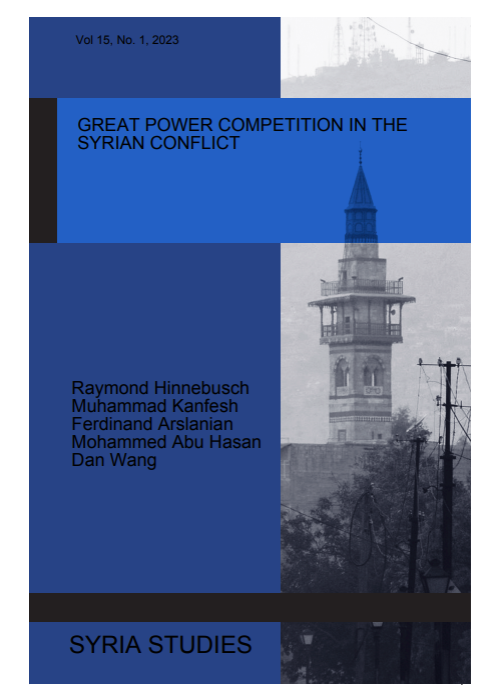Great power competition in Syria: from proxy war to sanctions war
Main Article Content
Abstract
This paper examines the latest phase in the Syrian conflict, roughly from 2015 to the current time, a period when agency has largely passed from Syrians to rival great powers which have become the ultimate shapers of developments, above all Russia and the US, but with China recently playing a greater role. Russian and American foreign policy goals in Syria are outlined; next analyzed is how their intervention helped shape a semi-proxy war in Syria. Then the transition to a sanctions war over reconstruction is examined: the various phase of sanctions inflicted on Syria and their impact on it. Then the case of Syrian sanctions is located within the global battle between Washington’s “sanctions hegemony,” and rival great powers seeking a multipolar world, including a look at the impact of the Ukraine war on this contest and on the battle for Syria. Finally attempts at push back by global and regional players against US sanctioning of Syria are examined. The paper ends with a conclusion summarizing how the global struggle has affected Syria and how outcomes in Syria will affect the latter.
Article Details

This work is licensed under a Creative Commons Attribution 4.0 International License.
Authors who publish with this journal agree to the following terms:- Authors retain copyright and grant the journal right of first publication with the work simultaneously licensed under a Creative Commons Attribution License that allows others to share the work with an acknowledgement of the work's authorship and initial publication in this journal.
- Authors are able to enter into separate, additional contractual arrangements for the non-exclusive distribution of the journal's published version of the work (e.g., post it to an institutional repository or publish it in a book), with an acknowledgement of its initial publication in this journal.
- Authors are permitted and encouraged to post their work online (e.g., in institutional repositories or on their website) prior to and during the submission process, as it can lead to productive exchanges, as well as earlier and greater citation of published work (See The Effect of Open Access).
